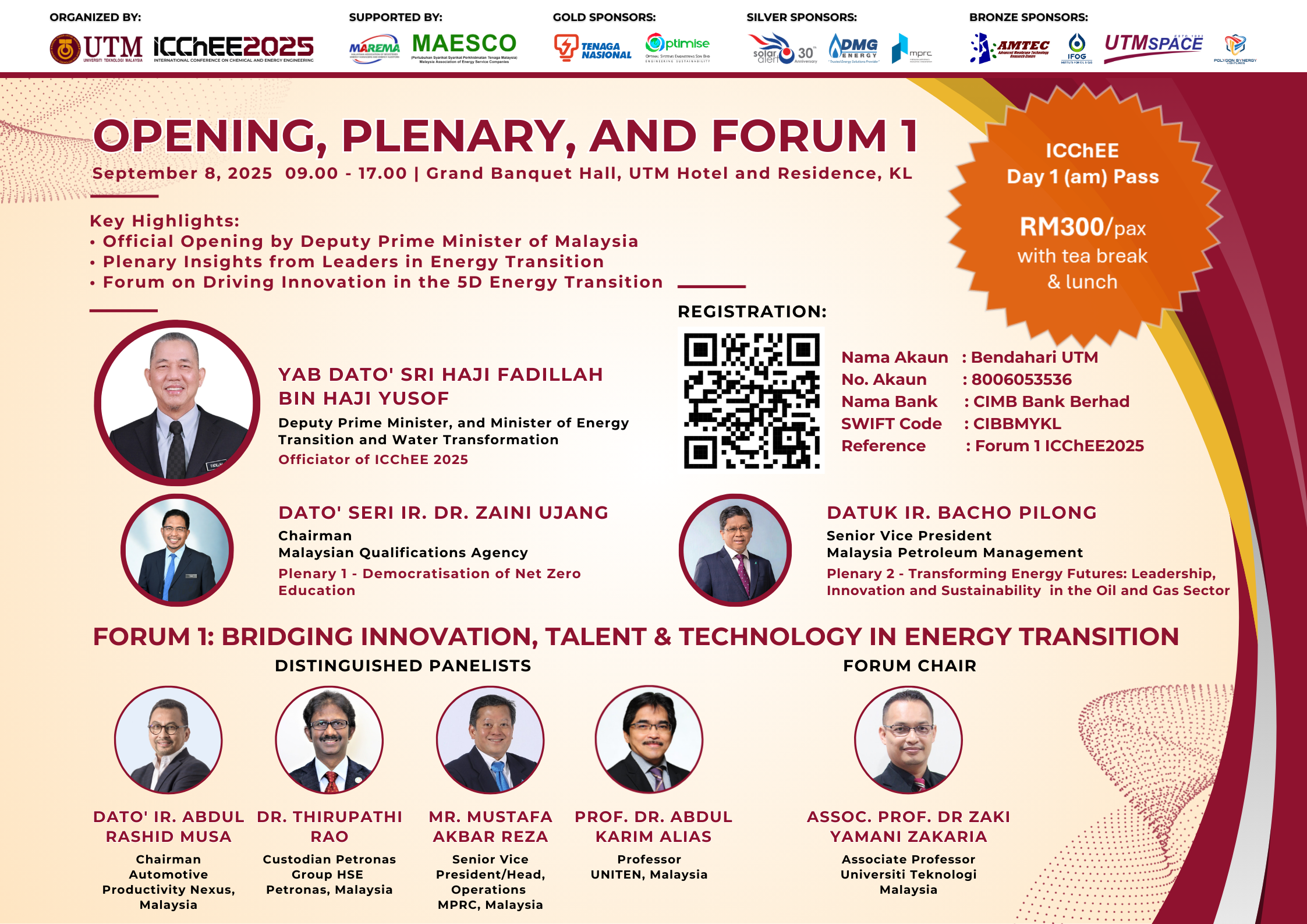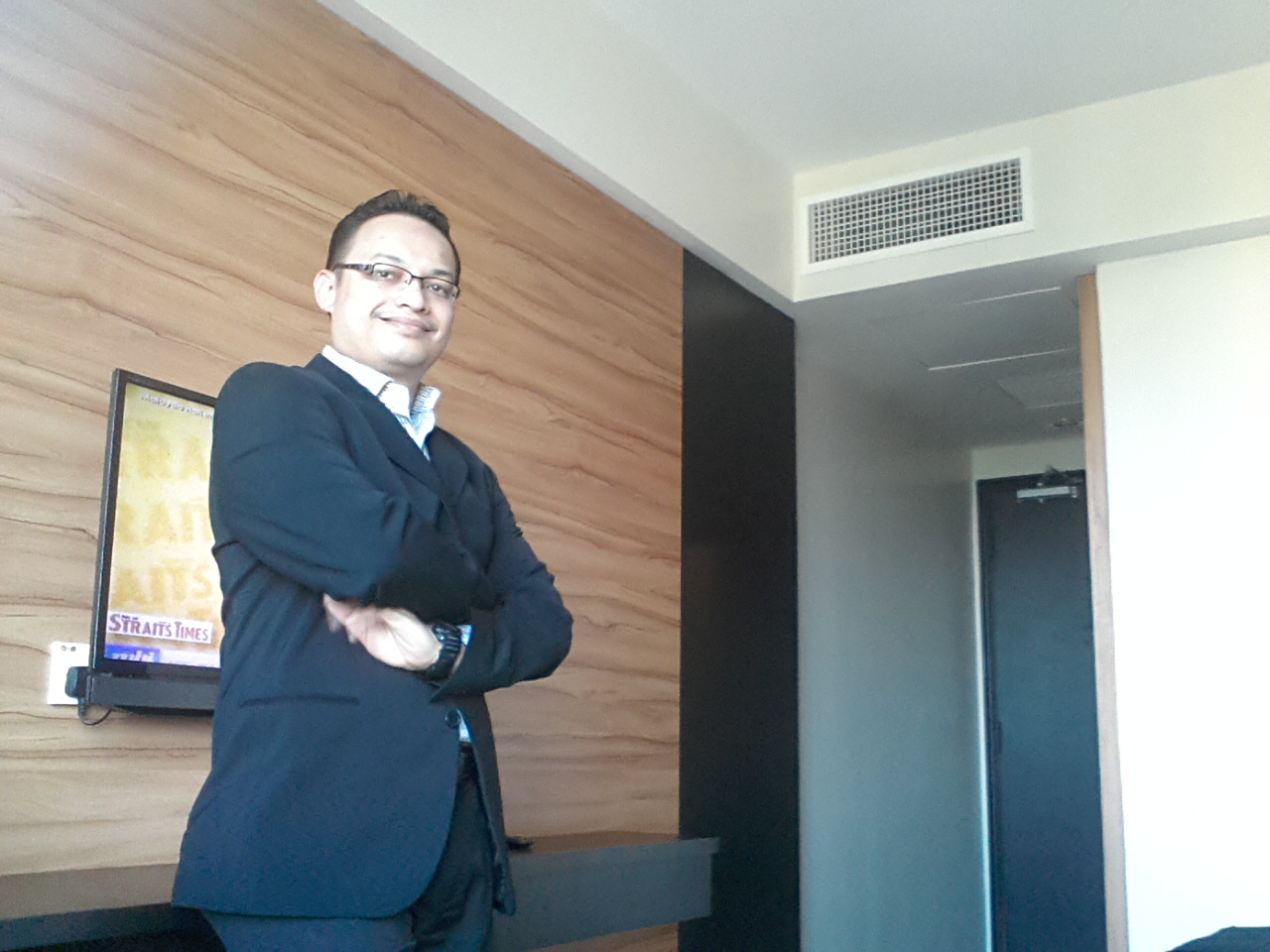
Today was a defining moment in my professional journey as I was entrusted with the role of Forum Chair and Moderator for Forum 1 at ICChee 2025. The forum, titled “Bridging Innovation, Talent & Technology in Energy Transition,” brought together an impressive panel of distinguished leaders from industry and academia. My responsibility was to steer the discussion, ensuring the dialogue flowed seamlessly and touched on critical aspects of Malaysia’s energy future.
The panelists were:
-
Dato’ Ir. Abdul Rashid Musa, Chairman, Automotive Productivity Nexus, Malaysia
-
Dr. Thirupathi Rao, Custodian Petronas Group HSE, Petronas Malaysia
-
Mr. Mustafa Akbar Reza, Senior Vice President/Head, Operations MPRC, Malaysia
-
Prof. Dr. Abdul Karim Alias, Professor, UNITEN, Malaysia
Each of them brought unique perspectives—from industrial productivity and safety to operations leadership and academic insights—making the forum an intellectually rich session.
Understanding the 5D Energy Transition and Net Zero
The theme of the conference revolved around the 5D Energy Transition, a framework capturing five key shifts: Decarbonisation, Decentralisation, Digitalisation, Democratisation, and Diversification. These dimensions represent the pathway toward a sustainable energy future, where fossil fuels are phased down, renewable energy becomes central, technology drives efficiency, and energy access is broadened across communities.
Aligned with this is the pursuit of Net Zero, an ambitious goal requiring nations, industries, and individuals to balance carbon emissions with removals. For Malaysia, this means rethinking energy generation, industrial practices, and consumption patterns to reduce greenhouse gas emissions while still meeting the energy demands of a growing economy. Net Zero is not merely an environmental commitment but a socio-economic transformation—driving innovation, nurturing talent, and demanding stronger integration between policy, academia, and industry.
Other Official Commitments of the Day
While moderating the forum was a highlight, my day did not end there. I also attended and chaired a pre-meeting with the Jabatan Audit Negara (JAN) auditors, who will be visiting RMC on 9–10 September 2025. The meeting was critical in finalizing the tentative agenda and clarifying expectations from the auditors. Their requirements are detailed and precise, meaning that every presentation and dataset must be prepared exactly to their standard.
To add to the challenge, I had to travel from Kuala Lumpur (for ICChee 2025) back to Johor Bahru on the same day, in order to be physically present for the audit tomorrow. The pressure mounted as my team and I had to work late into the night, burning the midnight oil to refine our presentations and data submissions to meet JAN’s expectations.
Balancing between moderating a high-level energy forum in Kuala Lumpur and preparing for a national audit in Johor Bahru epitomized the complexity and intensity of today’s responsibilities. Yet, it also reinforced the importance of resilience, teamwork, and unwavering commitment to both academic and administrative excellence.


















